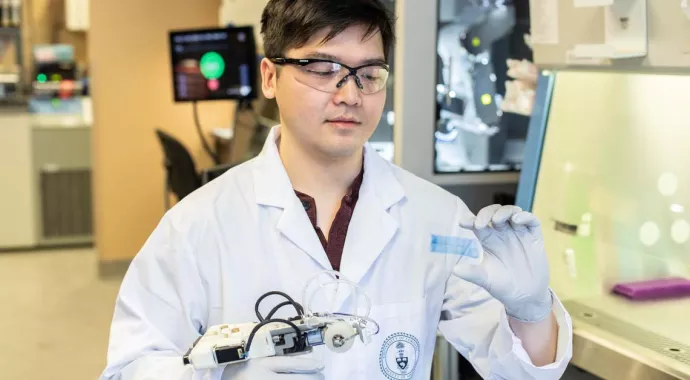
For a summary of departmental statements, committees, equity-based syllabi and additional resources, please see below:
Departmental Statements
Statement on Racism
The faculty of the UTM Biology Department joins with protestors across Canada, in the United States and around the world to condemn racism. We cannot remain silent while watching the abuse and killing of Ahmaud Arbery, Breonna Taylor, George Floyd and so many others in the USA, Canada and elsewhere. We cannot ignore the systemic bias revealed by the pattern of death brought on by the COVID-19 Pandemic that discriminates against communities underserved by health care systems. We cannot pretend that these things are new. Racially motivated killing and systemic biases are not new, and the research and higher education community is not without its role in all of this.
Our department acknowledges that the the legacy of racism affects all aspects of our lives and is evident in the history and practice of science as well as other parts of academic institutional life, including in Canada. As we join others to condemn anti-Black racism, we also look in the mirror. Here at UTM, we renew our support of black colleagues, students, and staff through active allyship, continuous unlearning and listening. We renew our support to all equity-seeking groups and to ending institutional racism. We commit to raising our awareness of how this invidious process creeps into scientific practice so that we can eliminate racism of any form, step by step. Read more »
Statement of the Biology Graduate Student Society
To our community,
In light of recent events, we at BGSS wish to make clear that we stand in solidarity with the protests against systemic anti-Black racism and police brutality. The killings of George Floyd, Ahmaud Arbery, David McAtee, Breonna Taylor and more all come at the head of a long, revolting history of unjust policing and systemic injustice against Black people in North America and abroad. We stand explicitly and unconditionally with our Black student body here at UTM, the country, and abroad. Furthermore, we recognize the longstanding histories and systems that maintain racial inequality across our society, including within science, academia, and higher education. It is incumbent on all of us, regardless of our various identities or lived experiences, to come together to combat discrimination of any kind in order to build a more just and equitable society, and that includes here in our own academic department. Read more »
Committees
The Equity, Diversity and Inclusion Committee has been established on July 1, 2020, and is a standing committee in the Department of Biology at University of Toronto Mississauga. Faculty, staff and student representatives serve on the EDI Committee which acts as an advisory body to the Chair of the Department and to the Biology Executive Committee, providing insight, advice and making recommendations on implementing measures to achieve the goals of increased equity, diversity and inclusion and upholding these values in the pursuit of our academic mission.
Equity-Based Syllabi
Statement
The University of Toronto is committed to equity, human rights and respect for diversity. All members of the learning environment in this course should strive to create an atmosphere of mutual respect where all members of our community can express themselves, engage with each other, and respect one another's differences. U of T does not condone discrimination or harassment against any persons or communities.
If you have any questions, comments, or concerns you may contact the UTM Equity, Diversity & Inclusion Office.
Recruitment Diversity Statement
The Department of Biology is committed to diversity in the faculty complement. Excellence flourishes in an environment that embraces the broadest range of people. We recognize that EDI is a complex and ongoing endeavor. In addition to traditional search methods, the department employs a proactive faculty recruitment strategy based on social networking, tapping into the opportunities offered by professional connections that our faculty have with leading academic peers in North America and around the world.
To strengthen the diversity of our faculty complement, the Department will focus on attracting excellent faculty from the following underrepresented groups: racialized persons / persons of colour, women, Indigenous / Aboriginal People of North America, persons with disabilities, LGBTQ2S+ persons, and others who may contribute to the further diversification of ideas.
Additional Resources
Last updated August 2023
